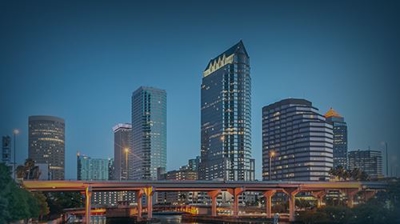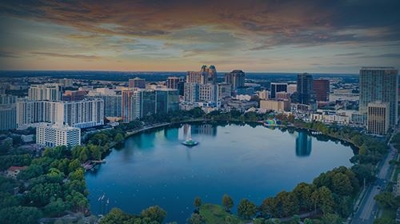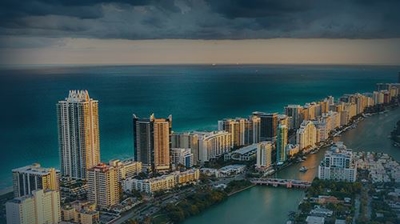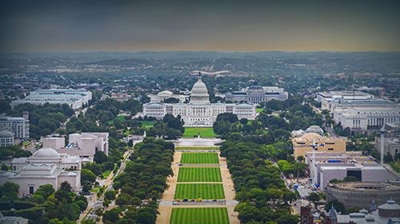
Family Visa Attorney in Tampa
Introduction to Our Family Visa Services
At American Dream Law Office, PLLC, we offer comprehensive legal services tailored to the needs of families navigating the complexities of U.S. immigration law in Tampa, FL. With a deep understanding of both local and national policies, our team is dedicated to helping families unite and thrive in the United States.
Need a family visa attorney? Contact us online or call (813) 499-1250 today for expert legal support. Keep your loved ones together as you start your new life! Se habla Español.
Family Visa Application Process in Tampa
Applying for a family visa in Tampa involves several steps, each critical for ensuring that families remain united under U.S family immigration law. The process typically begins with determining the eligibility of family members, followed by the filing of the appropriate petitions and supporting documents. It is essential to comply with the local U.S. Citizenship and Immigration Services (USCIS) office requirements to avoid delays.
The American Dream Law Office, PLLC team works closely with clients to ensure that all paperwork is correctly prepared and submitted, helping clients navigate the local complexities of the Tampa immigration system. We provide personalized consultations to discuss each family's unique situation and devise a strategy that aligns with current Tampa regulations and federal immigration laws.
Eligibility for Family-Based Visas
At American Dream Law Office, PLLC, we assist clients in understanding if they qualify for family-based immigration. Immediate relatives of U.S. citizens, such as spouses, unmarried children under 21, and parents, are eligible for IR visas. These visas have no annual cap, making them the fastest route to uniting families. For lawful permanent residents (Green Card holders), spouses and unmarried children of any age may also qualify for family-based immigration through specific preference categories.
The principal family preference categories that applicants should be aware of include:
- F1 (first preference): For unmarried adult children of U.S. citizens.
- F2A (second preference A): For spouses and minor children of permanent residents.
- F2B (second preference B): For unmarried adult children of permanent residents.
- F3 (third preference): For married children of U.S. citizens.
- F4 (fourth preference): For siblings of U.S. citizens.
Family preference categories cover broader familial relationships but have annual limits, which can result in longer wait times. Our firm provides personalized guidance throughout the process, ensuring clients understand their eligibility and what steps are required to bring their loved ones to the United States. For experienced guidance, turn to a skilled family visa attorney in Tampa as soon as possible.
Application Process Overview in Tampa
The family-based immigration process begins with the U.S. sponsor filing Form I-130, Petition for Alien Relative, with the U.S. Citizenship and Immigration Services (USCIS). This form establishes the family relationship between the sponsor and the intended immigrant. Once USCIS approves the petition, it is sent to the National Visa Center (NVC) for further processing. The NVC assigns a case number and provides instructions to submit required documentation, including financial support evidence (Form I-864) and civil documents like birth and marriage certificates.
Here are the main steps of the family visa process that a family visa lawyer can help you navigate in Tampa:
- Form I-130 filing: The sponsor submits the petition to establish the qualifying family relationship.
- NVC processing: Guidance through collecting documents and paying appropriate fees for National Visa Center review.
- Embassy or consulate interview: Preparation for the interview, including evidence collection and practice questions.
- Receipt of visa: After approval, assisting with final preparations for entry into the U.S.
- Adjustment of status: If applicable, guidance on applying for permanent residency once in the U.S.
After the NVC receives all documents and fees, the immigrant's case is forwarded to the U.S. Embassy or Consulate for a visa interview. During the interview, the applicant must demonstrate their eligibility and provide any additional requested documents. If approved, the immigrant receives their visa and can travel to the U.S., where they will receive their permanent resident status upon entry. American Dream Law Office, PLLC is ready to guide you through every step of this process, ensuring deadlines are met and all paperwork is thoroughly prepared to maximize the likelihood of success. Connect with a qualified family visa lawyer today.
Common Challenges and Solutions
Many families encounter the following challenges during the visa process, which a family visa lawyer in Tampa can help address:
- Visa denials: Commonly due to incomplete applications, inadequate documentation, or discrepancies during the interview.
- Extended processing delays: These may result from document backlogs, missing information, or changes in government procedures.
- Proof of family relationship: Difficulty providing sufficient evidence to satisfy USCIS or consular requirements.
- Requests for evidence: Additional document requests can slow down processing if not responded to promptly.
- Appeals and waivers: If your application is denied, you might need to appeal or submit a waiver to continue the process.
Processing delays are another hurdle, often caused by backlogs or missing documents. These delays can be stressful, especially when family unity is at stake. To help minimize delays, we provide proactive case management, follow up with government agencies when needed, and advise clients on properly meeting documentation requirements from the start. If complications arise, such as a denial, we explore options like filing an appeal or submitting additional evidence to resolve the issue efficiently. Our goal is to guide families through these challenges smoothly, keeping them informed every step of the way.
How a Family Visa Attorney in Tampa Can Help
Choosing the right legal professional can make a significant difference in the family visa process, especially given the unique challenges faced by individuals and families in Tampa. A family visa attorney in Tampa can bring local knowledge and a clear understanding of how cases are handled at the Tampa USCIS field office and the Tampa Immigration Court. This can help streamline interactions with local agencies and address specific regional requirements, leading to a more efficient case process.
The support of a family visa attorney is especially valuable when cases require timely submission of documents, clarification on eligibility, or responses to requests for additional evidence. For families living in or around Tampa, the ability to attend appointments and interviews at the local USCIS office offers additional convenience, and a local attorney can provide in-depth insight into what to expect at these locations. Additionally, legal guidance extends beyond paperwork—your attorney can advocate on your behalf if any issues arise, including during appeals or interviews.
If you are considering working with a family visa attorney, here are key benefits a local firm can offer:
- Understanding Florida regulations: Familiarity with Florida-specific requirements, practices, and immigration procedures.
- Local court connection: Experience working with Tampa Immigration Court and the Middle District of Florida, which often impacts hearing timelines and outcomes.
- Community support: Relationships with regional service organizations, translators, and advocates to support your family's transition.
By working with a Tampa-based attorney, you benefit from timely responses, cultural sensitivity, and firsthand knowledge of local agencies throughout Hillsborough County. This close connection to the Tampa area can provide meaningful reassurance at every stage of your family visa journey.
Need a family visa lawyer in Tampa? Call (813) 499-1250 or contact us online today for expert help uniting your loved ones in the U.S.


Family Immigration
- 2021 Immigration Reform - DACA and DAPA
- Adjustment Of Status
- Asylum
- Citizenship & Naturalization
- DACA
- Dual Citizenship
- Fiance Visa K 1
- Green Card For Parents
- Green Card Through Family
- Green Card Through Marriage
- K Visas
- K-3 Visa
- Permanent Residence
- Removal of Conditions on Residence (I-751)
- Same Sex Marriage Green Card
- Self Petitions Violence Against Women Act (VAWA)
- T-Visas
- Temporary Protected Status
- U Visas
- Unlawful Presence Waivers
- Waivers of Misrepresentation
- Withholding of Removal Attorney
Asylum
Asylum seekers often face numerous hurdles, including language barriers, complex legal processes, and cultural adjustments. Therefore, it is crucial for those seeking asylum to have competent legal representation. Our firm prioritizes providing personalized legal strategies to navigate these complexities, ensuring that individuals receive the support they need to present a compelling case. Our deep understanding of asylum law allows us to guide clients through documentation requirements, interview preparations, and court appearances, significantly enhancing their chances of success. Whether dealing with initial applications or appeals, American Dream Law Office, PLLC is committed to defending the rights of asylum seekers and helping them build a secure future in the United States.
Protected Grounds in Asylum
Determining the appropriate protected ground is essential in asylum cases and requires a nuanced understanding of both international and domestic law. Each asylum application is unique, often involving intricate personal histories and geopolitical factors. Our firm invests time in understanding each client's narrative to identify the most persuasive aspects of their claim. By doing so, we can effectively argue their eligibility under the appropriate protected grounds, whether it involves cases of political dissent, religious persecution, or social group discrimination. This thorough approach increases the likelihood of a successful application and ensures that the complexities of each case are fully addressed, providing clients with the best possibility of protection under U.S. asylum laws.
Analyzing Asylum Claims in Tampa
At American Dream Law Office, PLLC, we recognize that each asylum case presents its own unique set of challenges and circumstances. Evaluating claims within the Tampa context requires a comprehensive understanding of both the legal framework and the practical realities faced by our clients. With access to local resources and experts, we provide tailored support to help clients gather compelling evidence and craft persuasive personal narratives. Our firm is dedicated to ensuring that each client's case is meticulously prepared, taking into account all local nuances and potential legal hurdles to optimize the chances of success.
Understanding the intricacies of local legal procedures and precedents is crucial for building a robust asylum case. Our team stays informed on regional developments and leverages its strong connections with Tampa's legal and advocacy communities to benefit our clients. This localized approach ensures that we are proactive in anticipating challenges and can swiftly adapt strategies to align with current legal trends and enforcement practices.
Past Persecution
If an applicant establishes past persecution, there will be a presumption of future persecution. The government can rebut such a finding if 1) there was a fundamental change in circumstances or 2) the applicant may relocate within the country to avoid persecution. 8 CFR §§ 208.13(b)(1)(i)(A) and (B). Once a showing of past persecution is shown, the immigration judge must make such a finding. Antipova v. US Att’y Gen. (392 F.3d 1259 [11th Cir. 2004]). An applicant does not have to show subjective fear. Nor does he have to show that there was a pattern of persecution. 8 CFR § 208.13(b)(ii)(3). Once past persecution is shown, then there will be a presumption of future persecution. 8 CFR § 208.13(b)(1)(ii). Such a finding would also show that a person’s life would be threatened for purposes of withholding of removal. INA §241()(3).
Establishing past persecution is a crucial element in asylum cases as it allows applicants to substantiate their claims for protection under U.S. law. Evidence supporting past persecution can include medical reports, witness testimonies, police records, and personal statements detailing experiences that led to severe suffering. It is essential to meticulously compile and present all relevant documentation to effectively convey the severity and impact of prior persecution. Our firm’s thorough preparation and attention to detail aim to fortify each case, ensuring that past experiences are accurately represented and given due consideration by immigration authorities. This rigorous approach seeks to protect clients' rights and prevent further harm, supporting their quest for safety and stability in the U.S.
Humanitarian Asylum
When the government rebuts future persecution, an applicant may still qualify for asylum based on past persecution under humanitarian asylum. 8 CFR §208.13(b)(1)(iii)(A). Matter of Chen (20 I&N Dec. 16, 21 [BIA 1989]). Humanitarian asylum is not an independent claim for preservation purposes. An applicant may also qualify for asylum if he or she would face other serious harm upon removal. 8 CFR § 208.13(b)(1)(iii)(B); Matter of L-S- (25 I&N Dec. 705 [BIA 2012]). Past persecution does not require persecution if the applicant’s testimony is credible.
Humanitarian asylum offers an essential lifeline for individuals whose past persecution itself warrants protection, even if future persecution fears are rebutted. This form of asylum acknowledges the lasting impacts of previous trauma, allowing individuals a chance to rebuild their lives in safety and dignity. In these cases, it is vital to convey the enduring physical, emotional, or psychological scars that remain, which could seriously impede resettlement elsewhere. Our firm understands the importance of crafting a compelling narrative surrounding past experiences to articulate the need for humanitarian asylum. This involves collecting comprehensive evidence and effectively communicating the client's story to underscore the necessity for ongoing protection.
Well-Founded Fear of Future Persecution
An applicant who does not show past persecution may qualify for asylum if they can demonstrate the possibility of future persecution. INA §101(a)(42) requires that the applicant show a reasonable person similarly situated would fear persecution. Matter of Barrera (19 I&N Dec. 837, 845 [BIA 1989]). The quantum of proof may be less than a 10% possibility. 8 CFR §208.13(b)(2)((i)(B). The fear has both subjective and objective components. The persecutor does not need to be currently aware of the offending characteristic, but must be likely to become aware. Eduard v. Ashcroft (379 F.3d 182, 192-93 [5th Cir. 2004]). Additionally, the applicant does not have to show that they fled the country due to persecution, but that there is a current claim. Wiransane v. Ashcroft (366 F.3d 889, 899 [10th Cir. 2004]). Disclosure of asylum status to the applicant’s country may raise an independent claim of asylum. 8 CFR § 1208.6(a).
Successfully proving a well-founded fear of future persecution hinges upon a thorough understanding of the applicant’s social and political climate in their home country. Applicants must demonstrate the objective basis for their fears, drawing from credible country reports, eyewitness accounts, and expert testimonies. It's vital to articulate both subjective fear and objective evidence in harmony, presenting a solid case to immigration officials. At American Dream Law Office, PLLC, we meticulously analyze country conditions and gather corroborative evidence to reinforce each client's application, ensuring that fears of future persecution are presented with clarity and impact. Our goal is to offer peace of mind during this process by showcasing the genuine and critical need for asylum under U.S. immigration law.
Mandatory Denial of Asylum
Congress has established bars to asylum, where USCIS may not grant asylum, but an immigration judge must hold an evidentiary hearing regarding the bar. INA §§208(a)(2) and (b)(2). The bars include:
- Persecution of others under INA §208(b)(2)(A)(i)
- Particularly serious crimes INA §208(b)(2)(A)(ii)
- Serious nonpolitical crimes INA §208(b)(2)(A)(iii)
- Danger to the security of the United States INA §208(b)(2)(A)(iv)
- Terrorism-related inadmissibility grounds INA §208(b)(2)(A)(v)
- Firm resettlement INA §208(b)(2)(A)(vi)
- Safe third country under the US-Canada Agreement
- Previous asylum applicants under INA §§208(a)(2)(C)-(D) unless there are changed circumstances
- One-year time limit INA §§208(a)(2)(B), (D) unless there are changed or extraordinary circumstances
We understand that applying for asylum and withholding of removal is a serious matter. Your life could literally depend on the result.
Call American Dream Law Office, PLLC at (813) 499-1250 today for help applying for such relief.
Citizenship & Naturalization
The United States allows citizenship by several means. These include:
- Citizenship by birth in the United States under INA §§301(a)-(b) and (f)
- The citizenship of one or both parents INA §§301(c)-(d) and (g)-(h)
- A combination of parental citizenship and location, INA §301(e) and 303
- After birth, by a combination of parental citizenship and residence, INA §320 and 322
- Naturalization under INA §316
- Citizenship by Birth or Certain Unincorporated Territories
The 14th Amendment grants citizenship by birth in the United States. The United States adheres to the doctrine of jus soli, as established in U.S. v. Wong Kim Ark (169 U.S. 649 [1898]). This also includes persons born in certain U.S. territories under U.S. control, as stipulated in INA §302 and 304-307. People born in locations like the Philippines and American Samoa are not citizens but nationals of the United States and do not acquire citizenship at birth; however, they may acquire citizenship through naturalization. Entines v. U.S. (160 F.Supp.3d 208 [D.D.C. 2016]) discusses these implications.
A lack of an official birth record is not decisive regarding someone's birthplace in the U.S. Persons of unknown parentage found in the U.S. are considered born in the United States unless proven otherwise before turning 21, according to INA §301(f).
Obtaining U.S. citizenship or naturalization involves several avenues, each requiring a clear understanding of legal obligations and documentation. Whether pursuing citizenship by birth, bloodline, or naturalization, it is imperative to gather all necessary documentation and meet residency and lawful entry requirements. Navigating these pathways can pose challenges due to legal complexities, residency stipulations, and application specifics, underscoring the need for qualified legal guidance. At American Dream Law Office, PLLC, we assist clients in understanding the nuances of each citizenship path, helping them prepare comprehensive and compliant submissions to enhance their chances of successful citizenship applications. Our commitment is to facilitate a seamless journey towards achieving the full benefits and legal standing of U.S. citizenship.
Don't hesitate—reach out to an experienced family visa attorney now. Call (813) 499-1250 or complete an online form to take the next step.

-
 Headquarters Tampa10936 N 56th St, Suite 202
Headquarters Tampa10936 N 56th St, Suite 202
Temple Terrace FL 33617 United States -
 By Appointment Only St. Petersburg8130 66th St N #3
By Appointment Only St. Petersburg8130 66th St N #3
Pinellas Park, FL 33781 -
 By Appointment Only Orlando1060 Woodcock Road
By Appointment Only Orlando1060 Woodcock Road
Orlando, FL 32803, USA -
 By Appointment Only New York City8778 Bay Pkwy #202
By Appointment Only New York City8778 Bay Pkwy #202
Brooklyn, NY 11214, USA -
 By Appointment Only Miami66 W Flagler St 9th Floor
By Appointment Only Miami66 W Flagler St 9th Floor
Miami, FL 33130, United States -
 By Appointment Only Washington1201 Connecticut Ave NW Suite 600
By Appointment Only Washington1201 Connecticut Ave NW Suite 600
Washington, District of Columbia 20036


Schedule A Consultation Now
-
 Schedule a Consultation Book Now and Save $25! Standard Consultation
Schedule a Consultation Book Now and Save $25! Standard ConsultationExpert legal advice tailored to your case.
-
 Need Help Fast? Book a Same-Day Consultation
Need Help Fast? Book a Same-Day ConsultationWhen time is critical, get priority legal guidance today.
-
 Weekend Legal Advice 30 Minutes
Weekend Legal Advice 30 MinutesConvenient, expert immigration guidance on your schedule.
-
 Premium Strategy Session 30 MinutesWith over 15 years of immigration law experience, Attorney Yakzan offers premium consultations for those who want expert, strategic guidance, and a clear path forward.
Premium Strategy Session 30 MinutesWith over 15 years of immigration law experience, Attorney Yakzan offers premium consultations for those who want expert, strategic guidance, and a clear path forward.








